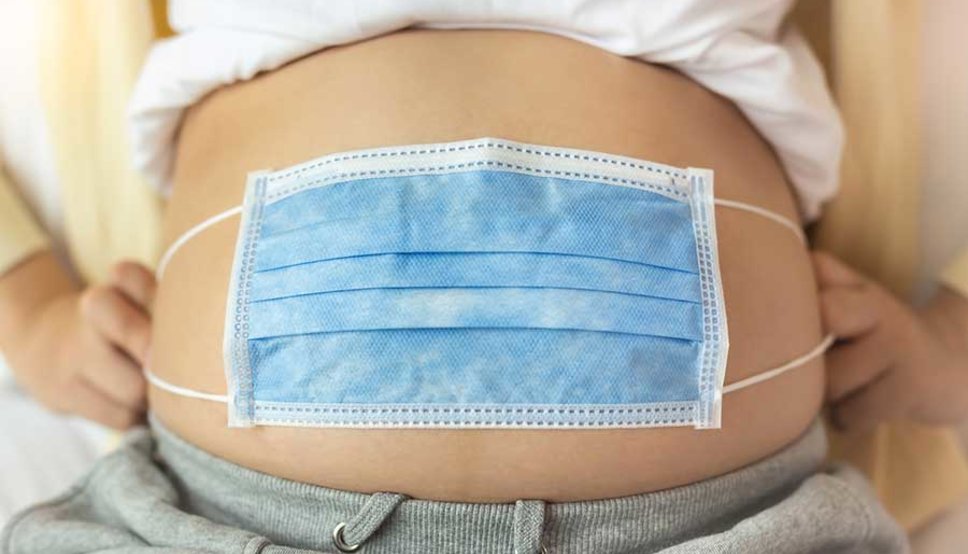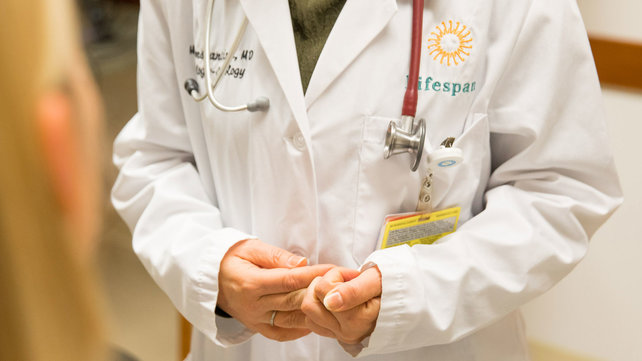Pregnancy, Breastfeeding, Coronavirus and the COVID-19 vaccine (Updated June 2025)

Women who are pregnant or breastfeeding have many questions about the COVID-19 vaccines. Following are answers to some of the most common questions.
Should I get a COVID-19 vaccine if I’m pregnant?
Although the US Department of Health and Human Services has withdrawn the CDC's recommendation for Covid vaccination for healthy children and pregnant women, the American College of Obstetrics and Gynecology and Brown Health Medical Group Obstetrics and Gynecology continue to strongly support its use in pregnancy. Evidence shows that the vaccine is safe and effective in pregnancy and that the benefits of receiving a COVID-19 vaccine far outweigh any potential risks of vaccination during pregnancy.
Do pregnant women experience different or more severe reactions to the COVID-19 vaccine?
Pregnant women experience similar side effects as the general population who receive the COVID-19 vaccine. One study found that pregnant women tend to have more localized reactions, such as soreness on the arm at the injection site. It also found less systemic reactions such as a low-grade fever, but these small differences were not significant. The fact is, if a mom does have a fever after the vaccination, it is not harmful to the pregnancy nor to the baby and can be treated with acetaminophen to reduce the fever.
What are the risks of getting COVID-19 during pregnancy?
Pregnant and recently pregnant individuals are more likely to get severely ill with COVID-19 as compared to non-pregnant individuals. Those who do contract COVID-19 during pregnancy are three times more likely to need intensive unit care.
There is no data linking the vaccine with an increased risk of preterm labor, but we do know that a COVID-19 infection in pregnancy increases the risk of preterm delivery. The baby needs to be delivered early to best treat mom's illness and protect the baby from risks of not getting enough oxygen. The COVID-19 vaccine can protect you from severe illness and reduce the risk of preterm delivery.
Should I avoid getting the COVID-19 vaccine during my first trimester?
No. The best time to get the COVID-19 vaccination is now. You do not need to wait until you are through your first trimester. The COVID-19 vaccine decreases the risk of getting the coronavirus illness. Delaying the vaccine increases your risk of becoming infected. Tens of thousands of women have received the vaccine without issue and there has been no increased risk of miscarriage.
Does the COVID-19 vaccine affect fertility?
No. There is no evidence showing that any vaccines, including COVID-19 vaccines, cause fertility problems (problems trying to get pregnant) in women or men. Unfortunately, there has been a great deal of misinformation regarding the COVID-19 vaccine having an effect on fertility. The Centers for Disease Control and Prevention (CDC) has helpful information here showing the safety of the COVID-19 vaccine in pregnancy, while breastfeeding, and for people who are trying to get pregnant now or might become pregnant in the future, as well as their partners.
Are there concerns about breastfeeding if you have been vaccinated?
No. There are several benefits to being vaccinated while breastfeeding. Your baby needs a healthy mother. If you should become ill and need to be hospitalized, this will interrupt the breastfeeding relationship and bonding time for mom and baby.
Is it true that my milk supply may be decreased if I get the vaccine?
No. There is no evidence to suggest this is true. However, illness can affect milk supply, further supporting being vaccinated to prevent serious COVID-19 illness.
If I have Covid-19 and breastfeed, will my baby get sick?
No. Your baby cannot get COVID-19 from your breastmilk. However, the baby can be infected through your respiratory droplets and secretions, so if you are positive for COVID-19, wear a mask when breastfeeding and caring for your baby so that there is a decreased chance that the baby will be exposed to your respiratory droplets.
If they are not giving the vaccine to children under age five, how is it safe for my baby if I get vaccinated?
The two situations are not the same. When you get vaccinated, you are not exposing your baby to the vaccine product. The vaccination product disappears in your body several days after receiving the dose, and your body makes antibodies to fight a future COVID-19 infection. What the baby is exposed to is mom’s antibodies to COVID-19 (as well as her other antibodies).
Which COVID-19 vaccination is best?
In short – whichever is available to you. According to the American College of Obstetricians and Gynecologists (ACOG), all of the COVID-19 vaccines are safe in pregnancy. We have the greatest amount of data about the Moderna and Pfizer vaccines. Some studies found an increased risk of a specific type of blood clot and low platelets in women under 50 years of age with the Johnson & Johnson vaccine. However, these instances were extremely rare.
If I already had COVID-19, do I really need the vaccine?
Yes. The natural immunity gained from having COVID-19 is variable and we are not certain how long it lasts. Since the natural antibody response is unknown and we have more reliable information about the antibody response following the vaccine, the current recommendation is that all should be vaccinated even if they previously had the COVID-19 infection.
If I have had COVID-19, how long should I wait before getting vaccinated?
While re-infection within three months of infection is not common, the current recommendation is to get vaccinated after you are no longer infectious. The CDC defines that as 10 days from start of symptoms, 24 hours fever free without the use of fever-reducing medication, and improvement of symptoms.
Will pregnant women need a booster shot?
Yes, a booster shot is recommended in pregnancy. The ACOG and Society for Maternal Fetal Medicine note that the amount of immunity provided by the COVID-19 vaccine decreases over time, especially in those who are immunocompromised and may not have had as robust a response to the vaccination initially.
I heard the COVID-19 vaccine can cause changes in your menstrual cycle. Is that true?
As seen on occasion with other vaccines, there have been some cases of breakthrough bleeding of the menstrual cycle, a heavier period, and post-menopausal bleeding with the COVID-19 vaccine. This bleeding is short-lived, usually only lasting for one cycle. We can see changes in the menstrual cycle with emotional or physical stress as well as illness, which may be factors unrelated to the vaccination.
Reviewed by Dr. Adrienne Perry, June 2025
About the Author:
Brown Health Medical Group Obstetrics and Gynecology
At the Brown Health Medical Group Obstetrics and Gynecology, we are committed to bringing together intelligent, talented and compassionate people to provide exceptional care for women based on the latest research, technological advances and holistic approaches.
Find a Doctor

The right provider is in our network
Search more than 1,200 providers in our network.



